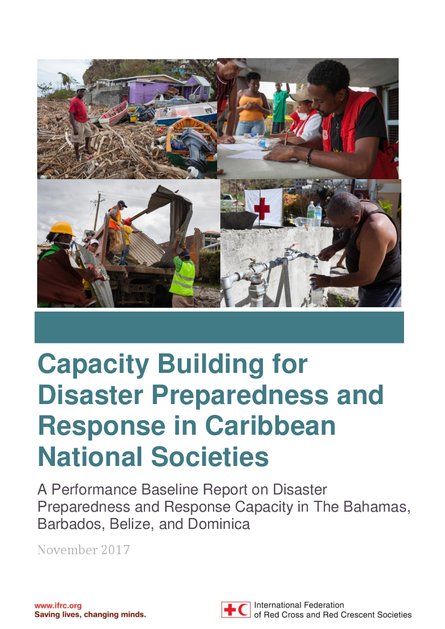
The geographical location and geology of countries in the Caribbean region exposes them to significantly high risk of many natural hazards and additionally, to climate change and variability which increases the frequency and magnitude of hydro-meteorological hazards. This vulnerability is further exacerbated by anthropological influences on the natural environment such as urbanisation, deforestation, coastal settlements and inadequate physical development planning which leads to higher levels of risks as well as impacts. The confluence of these issues has potentially devastating effects on lives and livelihoods and can overwhelm the capacity of governments and local institutions as evidenced by the toll of impact that Hurricane Irma and Hurricane Maria (September 2017) had on several Caribbean countries.
The Capacity Building Initiative for Disaster Preparedness and Response in Caribbean Red Cross National Societies with support from USAID seeks to build the capacity of these entities to support the enhanced resilience of communities to prepare for, respond to and recover from emergencies.
The aim of this performance baseline report on this Capacity Building Initiative for Caribbean Red Cross National Societies in Disaster Preparedness and Response is to provide baseline data for this and further initiatives and to help in strengthening these organizations to support enhanced resilience of communities to prepare for, respond to and recover from emergencies.
